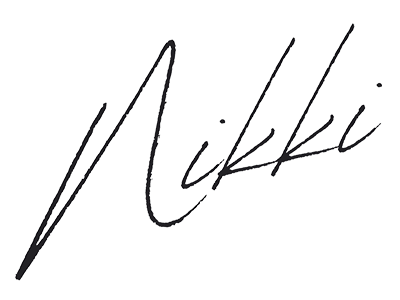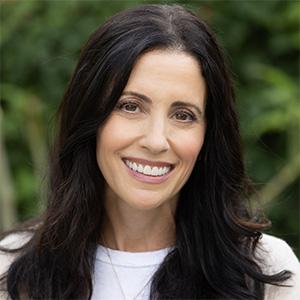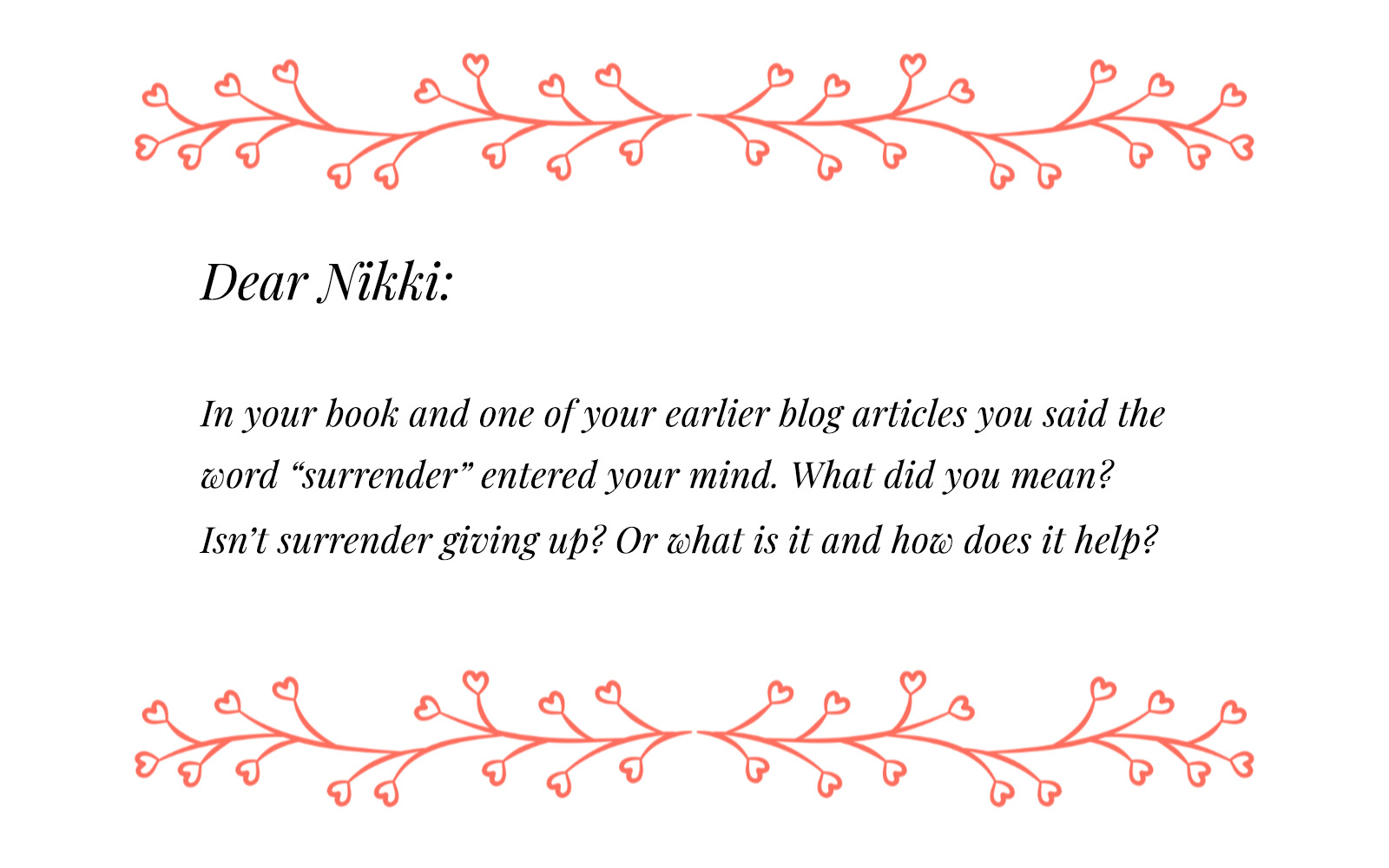I always love hearing from you and do my very best to respond to the many questions I receive. Sometimes, I feel your questions and my answers would benefit others, too. This is one of them.
Today’s question was submitted by Rita in Los Angeles.
Dear Nikki:
In your book and one of your earlier blog articles you said the word “surrender” entered your mind. What did you mean? Isn’t surrender giving up? Or what is it and how does it help?
Dear Rita:
The day I “surrendered” to something much bigger than myself, it was a total surprise to me.
I wasn’t religious. I had no spiritual practice. And I didn’t use words like “surrender” in my life.
But the morning I discovered that my 12-year-old son Tommy had passed away overnight, the pain hit me so hard and so fast that my mind froze and my body started breaking down. It became very clear to me within minutes that I could not carry my pain alone without getting very sick. Nor could I pass it on to anyone else.
Desperate for help, I reached beyond this planet and telepathically spoke to an entire universe of gods, goddesses, stars, and planets—none of whose names I knew. Then I lumped them all together, called them “the Universe,” and said to them with my thoughts:
“I surrender.”
Those words would have sounded nuts to the person I had been just one day earlier, but they made perfect sense to the woman I was at that very moment.
Then, as if surrendering to the Universe had made us partners in life, I added, “Tell me what you want me to do, and I’ll do it.”
In other words, in the midst of overwhelming uncertainty and anguish, the only reasonable action I could think to take was trusting that something greater than myself had the strength and wisdom to help me.
Was I giving up? I don’t think so.
In retrospect, I was doing what author and teacher Derek Rydall says “surrender” means to him. I was “giving in.”
I was giving in to a lack of “control” and handing it over to something greater than myself. I was also giving in to my “circumstances” instead of trying to fight, fix, or hide them—which intuition told me would only prolong my suffering and make me feel worse.
Some people have asked whether I accidentally found religion by surrendering.
The answer is no. But I did find faith.
I found faith in the unknown. I found faith in my intuition. And I found faith in love. And as all three pulled me forward, I eventually also found some peace.
But the act of surrendering isn’t only relevant during times of loss. Surrendering also helps people recover from all kinds of trauma and unhealthy habits. And it plays an important role in human transformation.
Take Alcoholics Anonymous (AA), for example.
AA is one of the largest and most successful communities helping people around the world recover from addiction to alcohol. One of the cornerstone principles of its 12-Step Program is turning the addiction over to a higher power and having faith that this higher power will help them do what AA members often cannot do on their own—get sober.
Who that higher power is doesn’t really matter. More than two million AA members across 180 countries currently trust that there is one.
By surrendering, AA members are not admitting defeat! On the contrary, they are finding humility. They are demonstrating courage. And as their higher power helps them transform their lives from the inside out, they are building an incredible community of hope.
The great news about surrendering is that the practice can also help us manifest the lives we truly want!
Author and podcaster Jennifer Blanchard teaches us all about the power of surrender in her very enlightening book F*ck the How (which I highly recommend). She says:
“When you surrender what you are actually doing is getting out of your own way so that the Universe can show up with its magic. It can’t do that when you’re blocking it with your resistant energy and worried thoughts.”
So, if you have a vision for your life that seems too big, or a particular goal you want to reach but don’t know how (or even if you are struggling to make a decision, like Blanchard herself was when she couldn’t decide whether or not to get divorced), you can try surrendering that vision, goal, or decision to a higher power—and Blanchard’s book offers specific ways for you to do just that.
All this might sound woo-woo, but Blanchard breaks down the concept of surrender in a way that practically feels like science.
Surrendering isn’t easy. And it doesn’t mean doing nothing. As Blanchard says, it means trusting that “for every step you take, the Universe will take more.”
I realize at this point that I’ve probably told you more about “surrender” than you ever wanted to know! 😂
But, in Blanchard’s words:
“Nothing has any meaning except the meaning you choose to give it.”
So, perhaps the key to discovering the true meaning of “surrender” and what it can do for you is to give it a chance, trusting that the Universe is nudging you to try it for a reason and will deliver exactly what you need.








